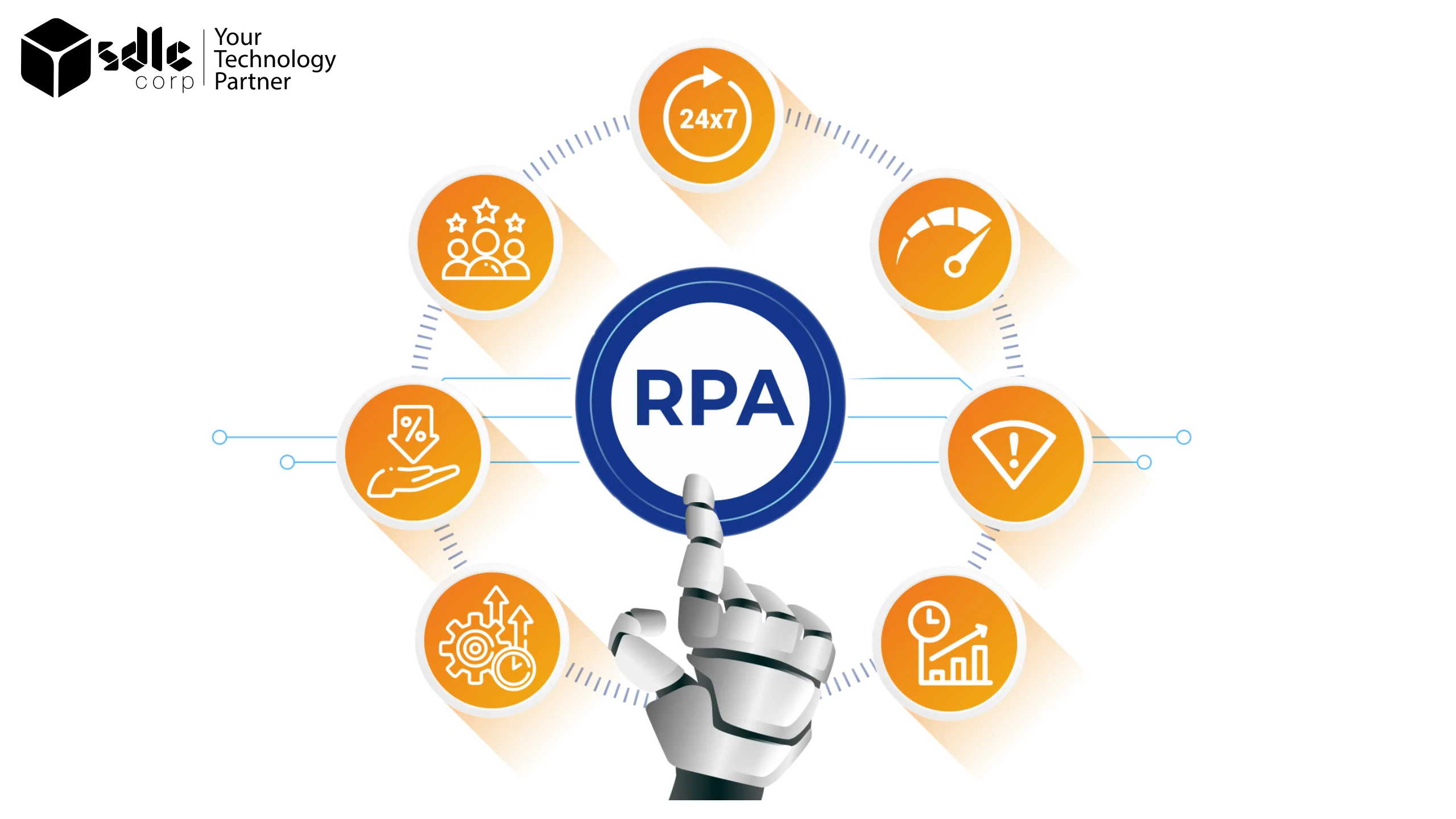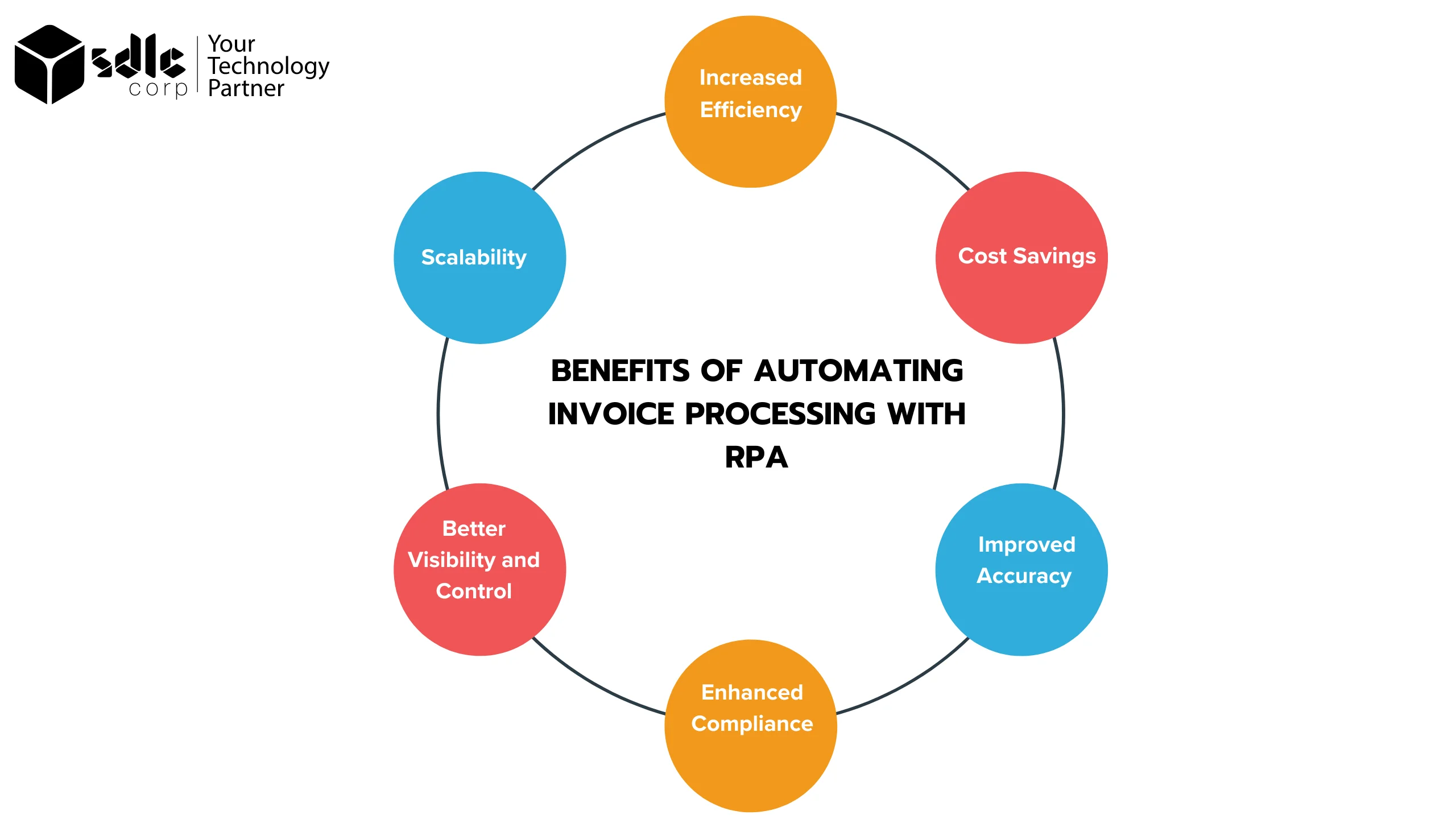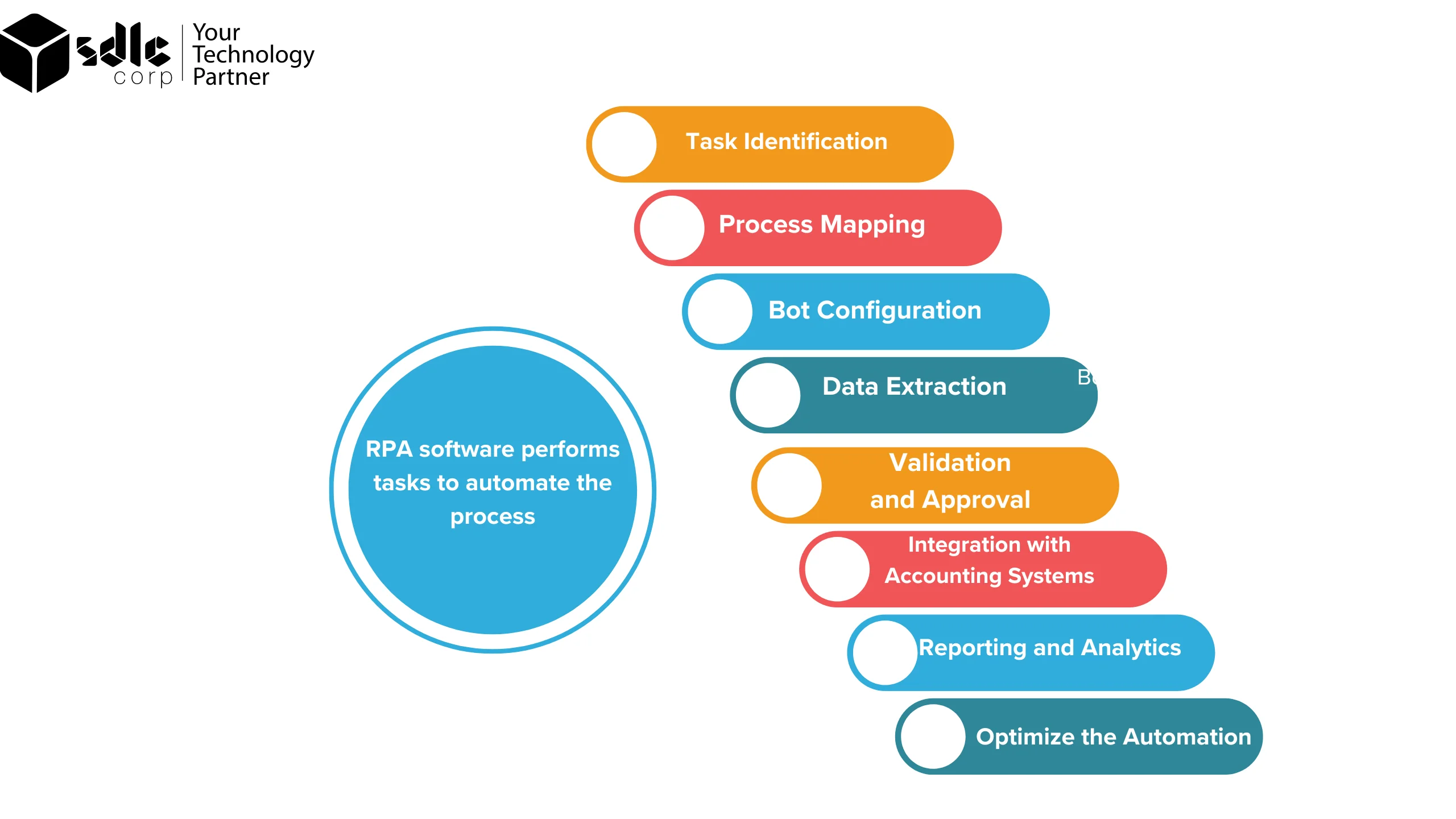What is RPA ( Robotic Process Automation) ?

RPA stands for Robotic Process Automation. It is a technology that uses software robots or “bots” to automate repetitive, rule-based tasks that are typically performed by humans. RPA bots can mimic human actions such as clicking, typing, and copying data between systems. RPA is used to automate a wide range of business processes, including data entry, invoice processing, and customer service tasks, among others.
Is automating invoice processing with RPA considered a game changer?
Yes, automating invoice processing with RPA is considered a game changer for many businesses. RPA can significantly reduce the time and effort required for invoice processing by automating repetitive tasks such as data entry, validation, and routing. This not only improves efficiency and accuracy but also allows employees to focus on more strategic tasks. Additionally, RPA can help businesses reduce costs, minimize errors, and improve compliance with invoicing regulations. Overall, RPA has the potential to transform invoice processing and bring significant benefits to organizations.
Discover the Future of Work: Explore RPA (Robotic Process Automation) Today!

How does RPA automate the Invoicing Process?
RPA automates the invoicing process by using software robots to perform repetitive, rule-based tasks involved in processing invoices. Here’s how RPA can automate different aspects of the invoicing process:
- Data Extraction: RPA bots can extract relevant data from invoices, such as invoice numbers, dates, amounts, and vendor information, using technologies like OCR (Optical Character Recognition). This eliminates the need for manual data entry.
- Invoice Validation: RPA bots can validate invoices by checking them against predefined rules and comparing them with purchase orders and receipts. Any discrepancies can be flagged for human review.
- Invoice Approval Workflow: RPA bots can automate the approval Sales Invoice workflow by routing to the appropriate approvers based on predefined rules. They can also send reminders for pending approvals.
- Integration with Accounting Systems: RPA can integrate with accounting systems to automatically update invoice information and payment statuses, eliminating the need for manual updates.
- Reporting and Analytics: RPA can generate reports on invoice processing times, payment statuses, and other metrics, providing valuable insights for process improvement.
Overall, RPA streamlines the invoicing process, reduces errors, improves efficiency, and frees up employees to focus on more strategic tasks.
Transform Your Business with RPA: Learn More Now!

What are the benefits of automating invoice processing with RPA?

Automating invoice processing with RPA offers several benefits, including:
- Increased Efficiency: RPA can process invoices faster than manual processing, leading to quicker turnaround times and improved efficiency.
- Cost Savings: By reducing the need for manual labor, RPA can help businesses save on labor costs associated with invoice processing.
- Improved Accuracy: RPA reduces the risk of errors that can occur with manual data entry, leading to more accurate invoice processing.
- Enhanced Compliance: RPA can help ensure that invoices are processed in accordance with regulatory requirements and company policies.
- Better Visibility and Control: RPA provides real-time visibility into the invoice processing workflow, allowing businesses to track the status of invoices and maintain better control over the process.
- Scalability: RPA can easily scale to accommodate changes in invoice volume, making it ideal for businesses of all sizes.
How does RPA Software perform the tasks to automate the process?

RPA software performs tasks to automate the process by following a set of predefined rules and instructions. Here’s how RPA software typically works to automate the invoice processing process:
- Task Identification: The first step is to identify the tasks involved in the invoice processing process that can be automated. This includes tasks such as data extraction, validation, approval routing, and integration with accounting systems.
- Process Mapping: Once the tasks are identified, the RPA software maps out the process flow, including the sequence of tasks, decision points, and rules for handling exceptions.
- Bot Configuration: The RPA software is configured to create software robots or bots that can perform the identified tasks. Each bot is programmed to mimic human actions such as clicking, typing, and copying data.
- Data Extraction: For tasks like data extraction, the RPA bot uses technologies like OCR to extract relevant information from invoices, such as invoice numbers, dates, amounts, and vendor information.
- Validation and Approval: The RPA bot validates invoices by checking them against predefined rules and comparing them with purchase orders and receipts. It then routes the invoices to the appropriate approvers based on predefined rules.
- Integration with Accounting Systems: The RPA bot integrates with accounting systems to update invoice information and payment statuses automatically.
- Reporting and Analytics: The RPA software generates reports on invoice processing times, payment statuses, and other metrics, providing valuable insights for process improvement.
Overall, RPA software automates the invoice processing process by performing tasks that would normally be done manually, leading to increased efficiency, cost savings, and improved accuracy.
How did a leading IT service company automate invoice processing by implementing RPA?
A leading IT service company automated invoice processing by implementing Robotic Process Automation (RPA) in their workflow. Initially, they identified manual tasks in their invoice processing, such as data entry and validation, that were time-consuming and prone to errors. After selecting a suitable RPA solution, they configured the software robots (bots) to mimic human actions and follow predefined rules for tasks like data extraction, validation, and approval routing. These bots were integrated with their accounting systems to update invoice information and payment statuses automatically.
The company conducted extensive testing to ensure the RPA solution worked seamlessly with their existing systems and did not introduce errors. After successful testing, the solution was deployed across the organization. Continuous monitoring and optimization of the RPA solution were performed to improve efficiency and accuracy. Overall, implementing RPA allowed the IT service company to streamline their invoice processing, resulting in increased efficiency, reduced errors, and cost savings.
Unlock Efficiency with RPA: Get Started Today!

FAQs
1.What is RPA and how does it apply to invoice processing?
RPA stands for Robotic Process Automation, which involves using software robots to automate repetitive tasks. In invoice processing, RPA can automate tasks such as data entry, validation, and approval routing.
2. What are the benefits of using RPA to automate invoice processing?
An invoice is a request for payment issued before the payment is made, while a receipt is a document issued after the payment has been made. Invoices are used to request payment from a buyer, while receipts are used to provide proof of payment to a customer.
3. How does RPA extract data from invoices?
Yes, an invoice can be used as a legal document. It serves as evidence of a transaction between a seller and a buyer and can be used in case of disputes or legal issues.
4. Is it difficult to implement RPA for invoice processing?
The complexity of implementing RPA for invoice processing can vary depending on the specific requirements of the organization. However, many RPA solutions are designed to be user-friendly and can be implemented with minimal disruption to existing processes.
5. What are some common challenges when implementing RPA for invoice processing?
Some common challenges include ensuring the accuracy of data extraction, integrating RPA with existing systems, managing and maintaining the RPA bots, and addressing any resistance to change from employees.
Share a few details about your project, and we’ll get back to you soon.
Let's Talk About Your Project
- Free Consultation
- 24/7 Experts Support
- On-Time Delivery
- sales@sdlccorp.com
- +1(510-630-6507)
